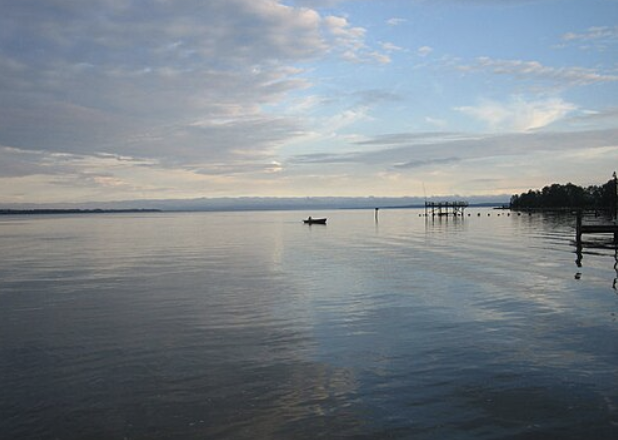
- Details
- By Native News Online Staff
In a historic tribal-wide vote, the Rappahannock Tribe in Virginia has become the first tribal nation in the U.S. to adopt a Tribal Constitution that recognizes the constitutional rights of nature.
The new Constitution affirms the legally enforceable rights of the Rappahannock River, granting it the ability to “exist, flourish, regenerate, and evolve.” This includes rights to groundwater recharge, to support healthy habitats for native species, and to maintain natural water flow. It also empowers any tribal member to enforce these rights in court.
While many municipalities and tribal governments have enacted laws recognizing the rights of ecosystems, this marks the first instance of a Tribal Constitution explicitly protecting a specific ecosystem. Constitutions are the highest form of law within legal systems.
Additionally, the Constitution establishes a tribal court system, with the tribal council set to adopt a new code to enforce the River's rights within this framework.
“We are proud to be the first Tribe in the United States to recognize the constitutional rights of nature, through our recognition of the legal rights of the Rappahannock River. Legal rights for the River was a logical next step – to put the force of tribal law behind the River, focused on protecting our River as the Mother of our people," Anne Richardson, Rappahannock tribal chief, said.
“The ratification of the Rappahannock Tribal Constitution is a major milestone that demonstrates how sovereignty and self-determination can be harnessed to protect ecosystems and species upon which their traditional cultures depend. Tribal Nations across Virginia are now standing up Tribal Courts to speak up for tribal communities and Indigenous values. This is just the beginning of using these new tools to protect the rights of nature," Melissa Ehrenreich, executive director of the Indigenous Conservation Council for the Chesapeake Bay, said.
The Center for Democratic and Environmental Rights (CDER) played a crucial role in developing the rights of nature provisions for the Constitution. Thomas Linzey, Senior Legal Counsel at CDER, expressed pride in assisting the Rappahannock Tribe, commending their groundbreaking move to enshrine legal rights for ecosystems in their Constitution.
More Stories Like This
50 Years of Self-Determination: How a Landmark Act Empowered Tribal Sovereignty and Transformed Federal-Tribal RelationsDenied Trip to Alcatraz, Leonard Peltier Tells Sunrise Gathering: “My Heart Is Full”
San Manuel Tribe Reclaims Ancestral Name, Faces Vandalism on Holiday
Minnesota Wild Makes History with First-ever Ojibwe-language NHL Broadcast
NCAI Demands Tribal Consultation Before Transfer of Native Education Programs
Help us tell the stories that could save Native languages and food traditions
At a critical moment for Indian Country, Native News Online is embarking on our most ambitious reporting project yet: "Cultivating Culture," a three-year investigation into two forces shaping Native community survival—food sovereignty and language revitalization.
The devastating impact of COVID-19 accelerated the loss of Native elders and with them, irreplaceable cultural knowledge. Yet across tribal communities, innovative leaders are fighting back, reclaiming traditional food systems and breathing new life into Native languages. These aren't just cultural preservation efforts—they're powerful pathways to community health, healing, and resilience.
Our dedicated reporting team will spend three years documenting these stories through on-the-ground reporting in 18 tribal communities, producing over 200 in-depth stories, 18 podcast episodes, and multimedia content that amplifies Indigenous voices. We'll show policymakers, funders, and allies how cultural restoration directly impacts physical and mental wellness while celebrating successful models of sovereignty and self-determination.
This isn't corporate media parachuting into Indian Country for a quick story. This is sustained, relationship-based journalism by Native reporters who understand these communities. It's "Warrior Journalism"—fearless reporting that serves the 5.5 million readers who depend on us for news that mainstream media often ignores.
We need your help right now. While we've secured partial funding, we're still $450,000 short of our three-year budget. Our immediate goal is $25,000 this month to keep this critical work moving forward—funding reporter salaries, travel to remote communities, photography, and the deep reporting these stories deserve.
Every dollar directly supports Indigenous journalists telling Indigenous stories. Whether it's $5 or $50, your contribution ensures these vital narratives of resilience, innovation, and hope don't disappear into silence.
 The stakes couldn't be higher. Native languages are being lost at an alarming rate. Food insecurity plagues many tribal communities. But solutions are emerging, and these stories need to be told.
The stakes couldn't be higher. Native languages are being lost at an alarming rate. Food insecurity plagues many tribal communities. But solutions are emerging, and these stories need to be told.
Support independent Native journalism. Fund the stories that matter.
Levi Rickert (Potawatomi), Editor & Publisher

